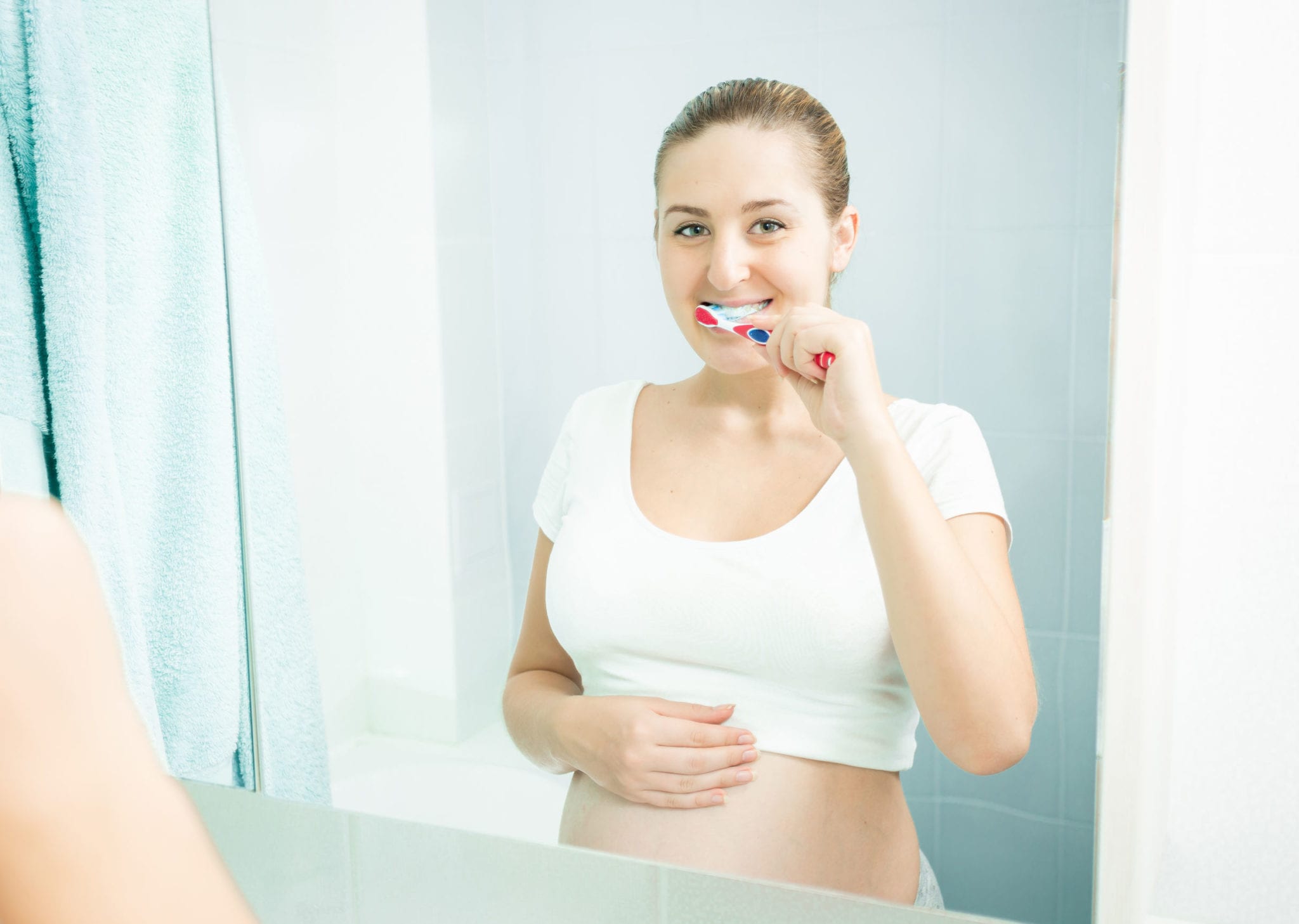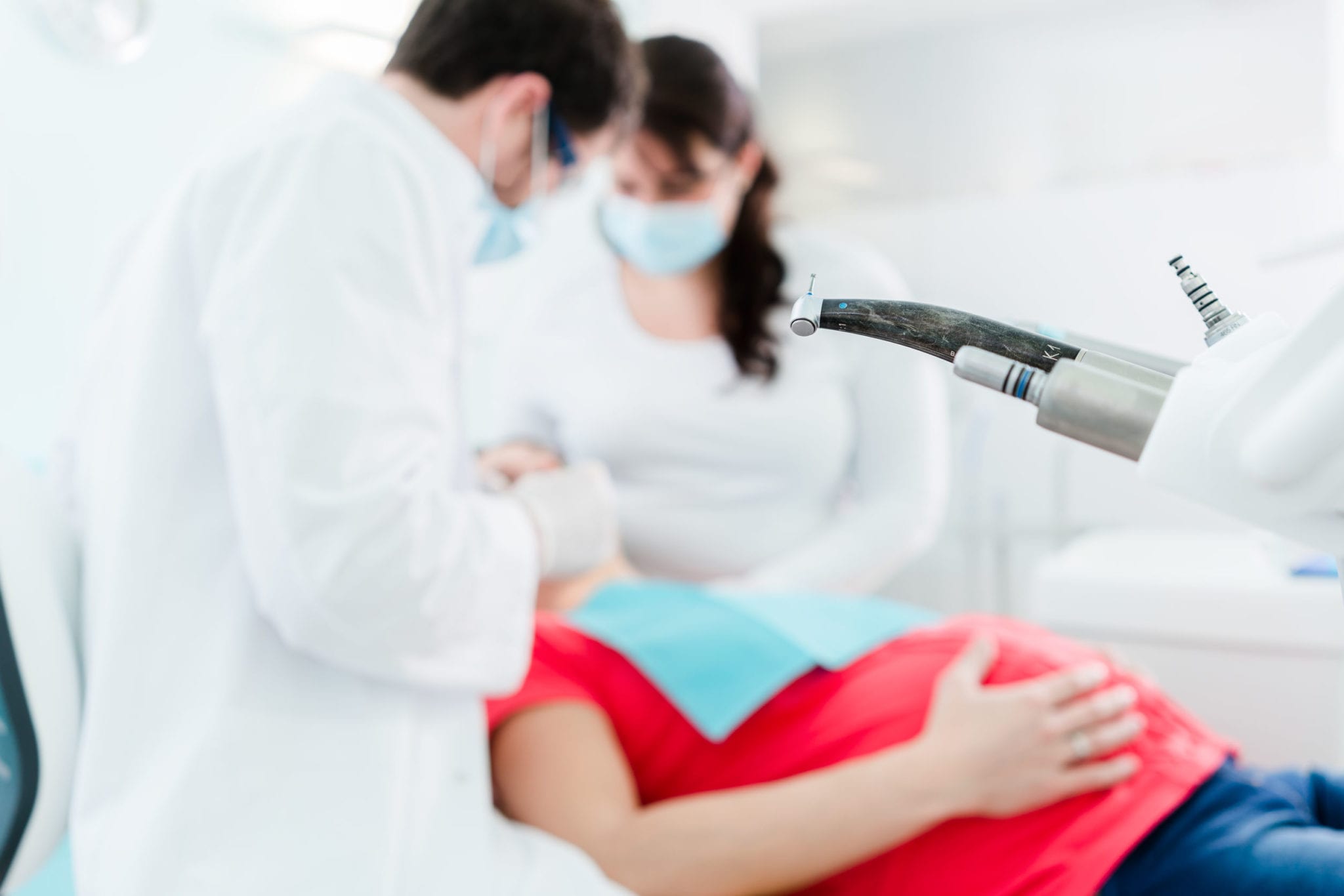
When you’re expecting a baby, there are many things to think about. New mothers often worry about what foods they can and cannot eat, how their baby is developing, and if morning sickness is every really going to end (spoiler: it does). Something that often gets overlooked is oral health – an important part of your overall health as well as the health of your baby.
If you want to have the healthiest pregnancy possible, then don’t neglect your mouth. Here’s what you need to know about oral health during pregnancy and why it deserves to be viewed with as much importance as your regular visits to the obstetrician.
Oral Health and Pregnancy
Oral health is defined as the health of your teeth, gums, and mouth. If you’re pregnant, oral health problems can creep up, impacting the health of your pregnancy. In fact, there have been studies that have shown a link between premature birth, or a baby being born before 37 weeks, and gum disease. If your baby is born premature, then they have a higher risk of health problems than babies that were carried to full term. In other words, your oral health can impact your baby’s life for years to come.
If you can take care of your teeth, gums, and mouth over the course of your pregnancy, then you can contribute to the healthiest start possible for your little one.
The Impact of Pregnancy on Oral Health
Your body goes through many changes over the course of your pregnancy – gums and teeth included. Some changes include increased levels of certain hormones that increase your risk of oral health issues, a change in eating habits that impact oral health, and a change in oral care habits since becoming pregnant, often due to nausea or tender gums.
These types of changes put you at increased risk for:
- Cavities – When you’re pregnant, you’re more likely to have cavities and can pass on the bacteria that contribute to the formation of cavities to your baby during pregnancy and after birth
- Gingivitis – This is a condition that causes swelling and redness of the gums. If not treated, it can lead to more serious gum diseases
- Loose teeth – High levels of certain hormones can temporarily relax the tissues in your mouth that keep your teeth in place, causing them to feel loose
- Periodontal disease – Untreated gingivitis can lead to this condition that causes infections in the gums. It can spread to the bones that help to support your teeth, loosening teeth and even causing the bacteria responsible for the condition to be released into your blood to possibly make you ill
What You Can Do
To help prevent oral health issues during pregnancy, it’s important to keep your gums and teeth healthy. This can be accomplished by:
- Regular brushing and flossing – Brush your teeth at least twice per day and floss once per day
- Rinse your mouth – If nausea or morning sickness make it difficult to brush your teeth, then rinse your mouth out with a mixture of water and baking soda to help reduce stomach acid in your mouth that can cause damage to your teeth
- See your dentist regularly – Regular visits to your dentist are essential during pregnancy, just make sure you let them know you’re pregnant

Pregnancy comes with some big changes to your body and your life as a whole, but it’s vital to remember that you must take care of your teeth and gums along with the rest of you.






